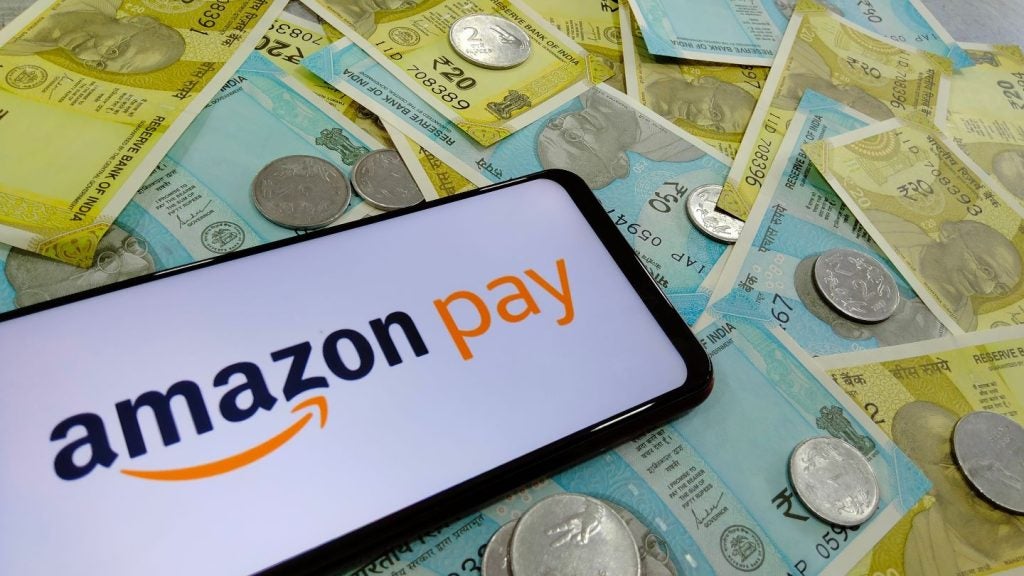INDUSTRY TRENDS
Non-cash transactions in US to
hit 100 billion
Recession has not halted the rise in
non-cash payments in the US, with economic research firm Moebs
Services predicting that for the first time ever they will this
year top the 100 billion transaction mark.
Based on the most recent data from the Federal
Reserve (Fed), 100 billion transactions would represent a 4 percent
increase compared with 2006 and leave the CAGR of non-cash payments
over the past 30 years at just over 3 percent.
“What is noteworthy about the projected 100
billion transactions is that they do not represent an increase in
US consumer spending, which began declining in 2008 and is still
not back on track as we approach year-end,” said the research
firm’s CEO Mike Moebs.
“This research indicates that consumers are
doing significantly more transactions for significantly fewer
dollars than in the past. This may be due to easy electronic
payment methods replacing cash.”

US Tariffs are shifting - will you react or anticipate?
Don’t let policy changes catch you off guard. Stay proactive with real-time data and expert analysis.
By GlobalDataBased on Moeb’s estimates debit cards will
account for a third of transactions in 2009, followed by cheques
(24 percent), credit cards (23 percent) and automated clearing
house payments (20 percent).
According to the Fed, debit cards overtook
credit cards as the leading non-cash payment instrument in 2006,
while as recently as 2004 the number of cheques for half of all
non-cash transactions.
MOBILE BANKING
Firethorn powers Bankcorp’s
expansion
US Bankcorp has expanded its
services in the mobile arena with the launch of a service that will
enable customers to transfer funds between accounts check balances,
review transaction history, check rewards balances and view special
offers from the bank.
US Bank, the sixth-largest
commercial bank in the US, is offering as a free downloadable
application.
Technology for the service is being provided
by Firethorn, the mobile banking unit of US wireless technology
developer Qualcomm.
The service complements US Bank’s two existing
mobile offerings, a text message account alerts service and a
mobile website.
US Bank has a total of more than 14 million
customers in 24 states.
ATMs
EMV helping win the fight
against European ATM fraud
Widespread adoption of the EMV
industry standard for smartcards is having a positive impact on
reducing ATM fraud, reports industry body the European ATM Security
Team (EAST).
In its latest study covering the first half of
2009, EAST found that card skimming incidents fell 19 percent, from
5,693 in the first half of 2008 to 4,629 incidents with losses
falling 30 percent from €222 million ($333 million) to €156
million.
EAST noted that this indicates that the EMV
rollout at Europe’s ATMs is helping cut skimming losses and that
fraud counter-measures, fraud monitoring capabilities and fraud
detection are improving.
EAST further reports that 92 percent of
Europe’s ATMs are EMV-compliant with total compliance due by the
end of 2010.
However, while card skimming crime is
receding, EAST reported that ATM card trapping is rising, with
1,045 incidents recorded in the first half of 2009 compared with
141 in the same period in 2008. Losses totalled €5.8 million in the
first half of 2009.
Despite overall success in Europe’s ATM fraud
arena the US’ reluctance to adopt the EMV standard is
concerning.
“A significant part of overall European losses
now occur in the US,” stressed EAST director Lachlan
Gunn.
REMITTANCES
Citi forges key alliance with
Bank of China
A significant new remittance channel
has opened for US bank Citi’s Global Transaction Services division
with the forging of a renminbi (RMB) cross-border remittance
distribution alliance with Bank of China (BoC).
Until the formation of this alliance
Citi had been limited to US dollar denominated remittances to
China.
“This alliance marks a major breakthrough for
Citi’s global remittance offering,” said Akash Rathke, MD, regional
head of bank services and public sector group, for Citi in the Asia
Pacific region.
The Citi-BoC RMB remittance alliance will be
operated in partnership with BoC’s New York branch which has been
in operation since 1981. State-owned, BoC is one of China’s four
biggest banks.
INDUSTRY TRENDS
Non-cash transactions in US to
hit 100 billion
Recession has not halted the rise in
non-cash payments in the US, with economic research firm Moebs
Services predicting that for the first time ever they will this
year top the 100 billion transaction mark.
Based on the most recent data from the Federal
Reserve (Fed), 100 billion transactions would represent a 4 percent
increase compared with 2006 and leave the CAGR of non-cash payments
over the past 30 years at just over 3 percent.
“What is noteworthy about the projected 100
billion transactions is that they do not represent an increase in
US consumer spending, which began declining in 2008 and is still
not back on track as we approach year-end,” said the research
firm’s CEO Mike Moebs.
“This research indicates that consumers are
doing significantly more transactions for significantly fewer
dollars than in the past. This may be due to easy electronic
payment methods replacing cash.”
Based on Moeb’s estimates debit cards will
account for a third of transactions in 2009, followed by cheques
(24 percent), credit cards (23 percent) and automated clearing
house payments (20 percent).
According to the Fed, debit cards overtook
credit cards as the leading non-cash payment instrument in 2006,
while as recently as 2004 the number of cheques for half of all
non-cash transactions.
MOBILE BANKING
Firethorn powers Bankcorp’s
expansion
US Bankcorp has expanded its
services in the mobile arena with the launch of a service that will
enable customers to transfer funds between accounts check balances,
review transaction history, check rewards balances and view special
offers from the bank.
US Bank, the sixth-largest
commercial bank in the US, is offering as a free downloadable
application.
Technology for the service is being provided
by Firethorn, the mobile banking unit of US wireless technology
developer Qualcomm.
The service complements US Bank’s two existing
mobile offerings, a text message account alerts service and a
mobile website.
US Bank has a total of more than 14 million
customers in 24 states.
ATMs
EMV helping win the fight
against European ATM fraud
Widespread adoption of the EMV
industry standard for smartcards is having a positive impact on
reducing ATM fraud, reports industry body the European ATM Security
Team (EAST).
In its latest study covering the first half of
2009, EAST found that card skimming incidents fell 19 percent, from
5,693 in the first half of 2008 to 4,629 incidents with losses
falling 30 percent from €222 million ($333 million) to €156
million.
EAST noted that this indicates that the EMV
rollout at Europe’s ATMs is helping cut skimming losses and that
fraud counter-measures, fraud monitoring capabilities and fraud
detection are improving.
EAST further reports that 92 percent of
Europe’s ATMs are EMV-compliant with total compliance due by the
end of 2010.
However, while card skimming crime is
receding, EAST reported that ATM card trapping is rising, with
1,045 incidents recorded in the first half of 2009 compared with
141 in the same period in 2008. Losses totalled €5.8 million in the
first half of 2009.
Despite overall success in Europe’s ATM fraud
arena the US’ reluctance to adopt the EMV standard is
concerning.
“A significant part of overall European losses
now occur in the US,” stressed EAST director Lachlan
Gunn.
REMITTANCES
Citi forges key alliance with
Bank of China
A significant new remittance channel
has opened for US bank Citi’s Global Transaction Services division
with the forging of a renminbi (RMB) cross-border remittance
distribution alliance with Bank of China (BoC).
Until the formation of this alliance
Citi had been limited to US dollar denominated remittances to
China.
“This alliance marks a major breakthrough for
Citi’s global remittance offering,” said Akash Rathke, MD, regional
head of bank services and public sector group, for Citi in the Asia
Pacific region.
The Citi-BoC RMB remittance alliance will be
operated in partnership with BoC’s New York branch which has been
in operation since 1981. State-owned, BoC is one of China’s four
biggest banks.
INTERNET BANKING
Online ranks first banking
choice among US consumers
Reaching a key milestone, internet
banking has become the most popular method of banking amongst US
consumers. The conclusion was drawn by the American Bankers
Association (ABA) from a survey conducted on its behalf between 14
and 16 August.
“This marks a watershed change,” said Nessa
Feddis, ABA senior counsel and retail banking expert.
“It tells us that, for the first time, more
consumers prefer the speed and convenience of conducting their
banking transactions on the internet than visiting their local
branch.
“It also tells us that consumers now have
confidence in the accuracy and security of online banking.”
Among all age groups surveyed, 25 percent of
respondents selected online banking as their first choice.
This preference was followed by visiting
branches (21 percent) and using ATMs (17 percent). The use of
mobile banking was preferred by 1 percent of consumers, primarily
among 18 to 34 year olds.
However, while the survey is indicative of a
trend towards internet banking, its results were marred by a
significant proportion of consumers polled who fell into the
‘unknown’ preference category.
For example, this category accounted for 20
percent of respondents in the 35 to 55 age group, up from 7 percent
in the ABA’s 2008 survey and 5 percent in its 2007 survey.
ATMS
Diebold’s ValiTech simplifies
ATM servicing
Servicing ATMs is unavoidable and,
explains US hardware vendor Diebold, requires technicians to secure
a temporary password provided by the bank each time they have to
access the system level of the ATM.
However, proving that technology has a
solution, Diebold has acted to streamline the ATM servicing process
with the launch ValiTech, a two-factor authentication solution
utilising a USB device to identify and authorise ATM
technicians.
In essence, ValiTech links each authorised
service technician to a USB hardware cryptographic device, or
token, using a digital certificate from security specialist
VeriSign.
Security is further enhanced by a PIN or pass
phrase, set by and known only to the technician, which ties the
technician to the digital certificate and the USB device.
Through ValiTech, the ATM can uniquely
identify the authorised Diebold technician who is accessing the
system and grant restricted authorisation to the unit’s system
functions based on the technician’s role and status.
ValiTech then creates a unique audit trail
documenting each time a technician is granted access and records
all menu activities executed during the service call.
SECURITY
Visa formalises end-to-end
encryption stance
Data field encryption – generally
termed end-to-end encryption – is receiving growing attention,
including active development by, among others processors, First
Data, Heartland Payment Systems and RBS WorldPay and technology
vendors EMC Corporation, VeriFone and Voltage Security.
This growing trend has led Visa to respond
with the publication of Visa Best Practices for Data Field
Encryption, Version I designed to assist the payment industry
develop a common, open standard and provide guidance to encryption
vendors and early adopters.
“While no single technology will completely
solve for fraud, data field encryption can be an effective security
layer to render cardholder data useless to criminals in the event
of a merchant data breach,” said Visa’s global head of data
security, Eduardo Perez.
“Using encryption as one component of a
comprehensive data security program can enhance a merchant’s
security by eliminating any clear text data either in storage or in
flight.”
PAYMENTS PROCESSING
Elavon drive into EU sustains
its momentum
Intensifying its drive into the
European market, US payments processor Elavon has acquired
Citibank’s Diners Club Card merchant-location portfolio in Western
Europe.
The deal came a week after Elavon’s
announcement that it had formed an alliance with Spanish banking
group Santander with the objective to become one of the leading
players in the UK merchant acquiring market (see EPI 267).
The deal with Citibank brings with it some
75,000 merchants that accept Diners Club International cards in the
UK, Ireland, France, Benelux, Switzerland and Germany, for which
Elavon will perform processing, funding and customer support
service.
Notably, merchants involved will have the
option to consolidate their payments acceptance by utilising Elavon
as a single-source provider for other credit and debit card
transactions, eliminating the need for merchants to maintain
separate processing relationships.
Elavon is a wholly-owned subsidiary of US
Bancorp, the sixth-largest commercial bank in the US.
COMPANIES
MoneyGram hit by a
double-whammy
A lawsuit over a patent between
remittance rivals Western Union and MoneyGram has ended in victory
for Western Union with a jury awarding damages of $16.5 million
dollars against MoneyGram.
The lawsuit, filed by Western Union in May
2007, alleged that MoneyGram infringed Western Union patents for a
system of staging money transfers through a call centre and
completing transactions at an agent location.
According to Western Union, an investigation
it undertook revealed that MoneyGram FormFree system was
essentially replicating its Money Transfer by Phone service.
Commenting on the outcome, MoneyGram
vice-president and associate general counsel Carolyn Eshleman said:
“Clearly, we are disappointed with the jury’s verdict.
“We are evaluating the decision, determining
next steps required, and reviewing our legal options, including
post-verdict motions and appeals.”
Separately, MoneyGram has entered into an
agreement with the US Federal Trade Commission (FTC) to implement
new systems and processes to bolster its consumer anti-fraud
programme.
As part of the agreement MoneyGram will pay
$18 million into an FTC-administered fund to refund consumers
affected by third-party fraud.
INDUSTRY TRENDS
Number of unbanked UK adults
falls sharply
Trumpeting a job well done, the UK’s
Financial Inclusion Taskforce (FIT) reports that the number of
households in the country has been cut by half, achieving a goal
set in December 2004. The FIT was established by the Treasury in
April 2005 to oversee the government’s Universal Banking
initiative.
According to FIT’s annual report released
earlier this month, the number of household without access to any
form of bank account fell from 2.02 million adults living in 1.3
million households in the 2003-04 financial year to 890,000 in
690,000 households at the end of the 2007-08 financial year.
The FIT defines adults with a current account,
saving account or basic bank account as having access to banking
services. Basic bank accounts are accessible only via ATMs and bank
branches.
Of the UK’s remaining unbanked adults, FIT
noted that 51percent are in the lower two of 10 income deciles and
80 percent are in the bottom four deciles. Also of note, the FIT
found that the majority of unbanked households (81 percent) are
either single or lone-parent households.
According to the UK’s Office for National
Statistics there are 26.1 million households and 49.2 million
adults in the UK.
CARDS
MasterCard simplifies debit
card budgeting
Texas-based Security Service Federal
Credit Union (Security Service FCU) has become the first financial
institution to offer MasterCard Money Manager, a new online
financial management tool for debit card users.
Intended to simplify identification of
spending patterns and compare actual spending to an allocated
budget, Money Manager enables consumers to review MasterCard
signature and PIN-based transactions on multiple cards daily,
monthly or over time and have the ability to sort transactions by
date, merchant category, merchant location, card number and
name.
Seemingly an appropriate innovation, research
by MasterCard reveals that 43 percent of US consumers prefer debit
to other payment methods because of its ability to provide greater
financial control and help them spend responsibly.
Security Service FCU, with over $5 billion in
assets and more than 700,000 members, is the ninth largest credit
union in the US.
CARDS
No stopping CUP as it becomes
top brand
China UnionPay (CUP), China’s only
card organisation, continued its rampant growth in 2008 to become
the second biggest bankcard brand in the Asia-Pacific region by
transaction volume and total transactions, and the top brand in the
region by the number of cards.
These rankings are based on a study by
research firm Nilson which revealed the 1.8 billion CUP cards
generated 4.023 billion transactions in 2008, up 43.8 percent
compared with 2007, while total volume including purchases and cash
withdrawals increased 34.2 percent to $739.49 billion. Based on
purchase volume only, CUP achieved a 35.4 percent market share in
2008.
CUP has also continued growing its global
footprint with CUP cards accepted in 61 countries and regions at
the end of June 2009.
In addition, some 50 financial institutions in
8 countries and regions now issue CUP cards in local
currencies.
Reaching a key milestone, internet
banking has become the most popular method of banking amongst US
consumers. The conclusion was drawn by the American Bankers
Association (ABA) from a survey conducted on its behalf between 14
and 16 August.
“This marks a watershed change,” said Nessa
Feddis, ABA senior counsel and retail banking expert.
“It tells us that, for the first time, more
consumers prefer the speed and convenience of conducting their
banking transactions on the internet than visiting their local
branch.
“It also tells us that consumers now have
confidence in the accuracy and security of online banking.”
Among all age groups surveyed, 25 percent of
respondents selected online banking as their first choice.
This preference was followed by visiting
branches (21 percent) and using ATMs (17 percent). The use of
mobile banking was preferred by 1 percent of consumers, primarily
among 18 to 34 year olds.
However, while the survey is indicative of a
trend towards internet banking, its results were marred by a
significant proportion of consumers polled who fell into the
‘unknown’ preference category.
For example, this category accounted for 20
percent of respondents in the 35 to 55 age group, up from 7 percent
in the ABA’s 2008 survey and 5 percent in its 2007 survey.
ATMS
Diebold’s ValiTech simplifies
ATM servicing
Servicing ATMs is unavoidable and,
explains US hardware vendor Diebold, requires technicians to secure
a temporary password provided by the bank each time they have to
access the system level of the ATM.
However, proving that technology has a
solution, Diebold has acted to streamline the ATM servicing process
with the launch ValiTech, a two-factor authentication solution
utilising a USB device to identify and authorise ATM
technicians.
In essence, ValiTech links each authorised
service technician to a USB hardware cryptographic device, or
token, using a digital certificate from security specialist
VeriSign.
Security is further enhanced by a PIN or pass
phrase, set by and known only to the technician, which ties the
technician to the digital certificate and the USB device.
Through ValiTech, the ATM can uniquely
identify the authorised Diebold technician who is accessing the
system and grant restricted authorisation to the unit’s system
functions based on the technician’s role and status.
ValiTech then creates a unique audit trail
documenting each time a technician is granted access and records
all menu activities executed during the service call.
SECURITY
Visa formalises end-to-end
encryption stance
Data field encryption – generally
termed end-to-end encryption – is receiving growing attention,
including active development by, among others processors, First
Data, Heartland Payment Systems and RBS WorldPay and technology
vendors EMC Corporation, VeriFone and Voltage Security.
This growing trend has led Visa to respond
with the publication of Visa Best Practices for Data Field
Encryption, Version I designed to assist the payment industry
develop a common, open standard and provide guidance to encryption
vendors and early adopters.
“While no single technology will completely
solve for fraud, data field encryption can be an effective security
layer to render cardholder data useless to criminals in the event
of a merchant data breach,” said Visa’s global head of data
security, Eduardo Perez.
“Using encryption as one component of a
comprehensive data security program can enhance a merchant’s
security by eliminating any clear text data either in storage or in
flight.”
PAYMENTS PROCESSING
Elavon drive into EU sustains
its momentum
Intensifying its drive into the
European market, US payments processor Elavon has acquired
Citibank’s Diners Club Card merchant-location portfolio in Western
Europe.
The deal came a week after Elavon’s
announcement that it had formed an alliance with Spanish banking
group Santander with the objective to become one of the leading
players in the UK merchant acquiring market (see EPI 267).
The deal with Citibank brings with it some
75,000 merchants that accept Diners Club International cards in the
UK, Ireland, France, Benelux, Switzerland and Germany, for which
Elavon will perform processing, funding and customer support
service.
Notably, merchants involved will have the
option to consolidate their payments acceptance by utilising Elavon
as a single-source provider for other credit and debit card
transactions, eliminating the need for merchants to maintain
separate processing relationships.
Elavon is a wholly-owned subsidiary of US
Bancorp, the sixth-largest commercial bank in the US.
COMPANIES
MoneyGram hit by a
double-whammy
A lawsuit over a patent between
remittance rivals Western Union and MoneyGram has ended in victory
for Western Union with a jury awarding damages of $16.5 million
dollars against MoneyGram.
The lawsuit, filed by Western Union in May
2007, alleged that MoneyGram infringed Western Union patents for a
system of staging money transfers through a call centre and
completing transactions at an agent location.
According to Western Union, an investigation
it undertook revealed that MoneyGram FormFree system was
essentially replicating its Money Transfer by Phone service.
Commenting on the outcome, MoneyGram
vice-president and associate general counsel Carolyn Eshleman said:
“Clearly, we are disappointed with the jury’s verdict.
“We are evaluating the decision, determining
next steps required, and reviewing our legal options, including
post-verdict motions and appeals.”
Separately, MoneyGram has entered into an
agreement with the US Federal Trade Commission (FTC) to implement
new systems and processes to bolster its consumer anti-fraud
programme.
As part of the agreement MoneyGram will pay
$18 million into an FTC-administered fund to refund consumers
affected by third-party fraud.
INDUSTRY TRENDS
Number of unbanked UK adults
falls sharply
Trumpeting a job well done, the UK’s
Financial Inclusion Taskforce (FIT) reports that the number of
households in the country has been cut by half, achieving a goal
set in December 2004. The FIT was established by the Treasury in
April 2005 to oversee the government’s Universal Banking
initiative.
According to FIT’s annual report released
earlier this month, the number of household without access to any
form of bank account fell from 2.02 million adults living in 1.3
million households in the 2003-04 financial year to 890,000 in
690,000 households at the end of the 2007-08 financial year.
The FIT defines adults with a current account,
saving account or basic bank account as having access to banking
services. Basic bank accounts are accessible only via ATMs and bank
branches.
Of the UK’s remaining unbanked adults, FIT
noted that 51percent are in the lower two of 10 income deciles and
80 percent are in the bottom four deciles. Also of note, the FIT
found that the majority of unbanked households (81 percent) are
either single or lone-parent households.
According to the UK’s Office for National
Statistics there are 26.1 million households and 49.2 million
adults in the UK.
CARDS
MasterCard simplifies debit
card budgeting
Texas-based Security Service Federal
Credit Union (Security Service FCU) has become the first financial
institution to offer MasterCard Money Manager, a new online
financial management tool for debit card users.
Intended to simplify identification of
spending patterns and compare actual spending to an allocated
budget, Money Manager enables consumers to review MasterCard
signature and PIN-based transactions on multiple cards daily,
monthly or over time and have the ability to sort transactions by
date, merchant category, merchant location, card number and
name.
Seemingly an appropriate innovation, research
by MasterCard reveals that 43 percent of US consumers prefer debit
to other payment methods because of its ability to provide greater
financial control and help them spend responsibly.
Security Service FCU, with over $5 billion in
assets and more than







